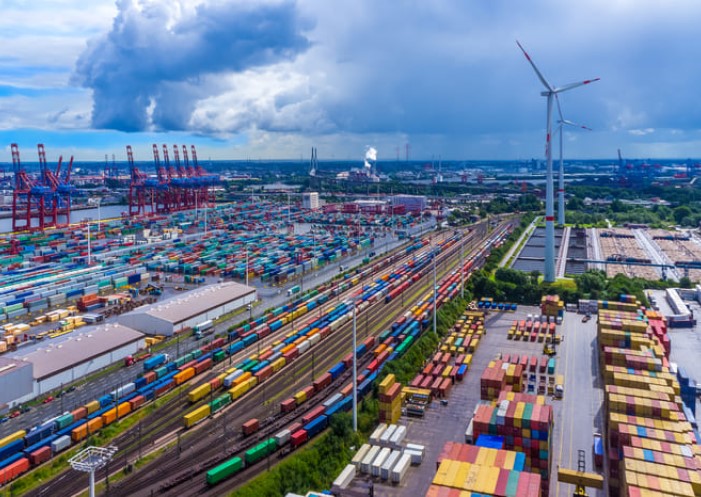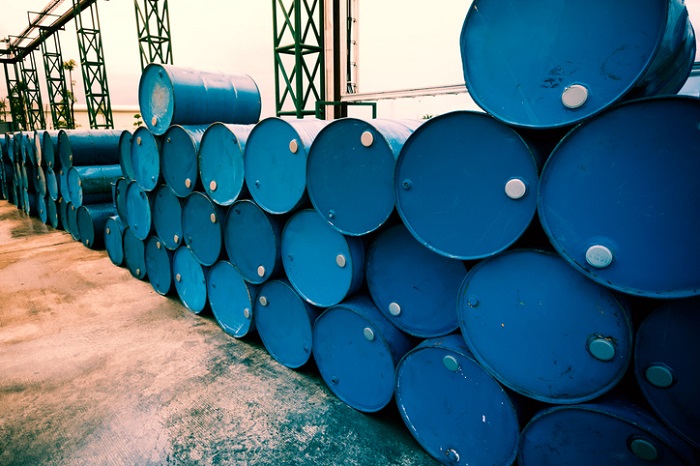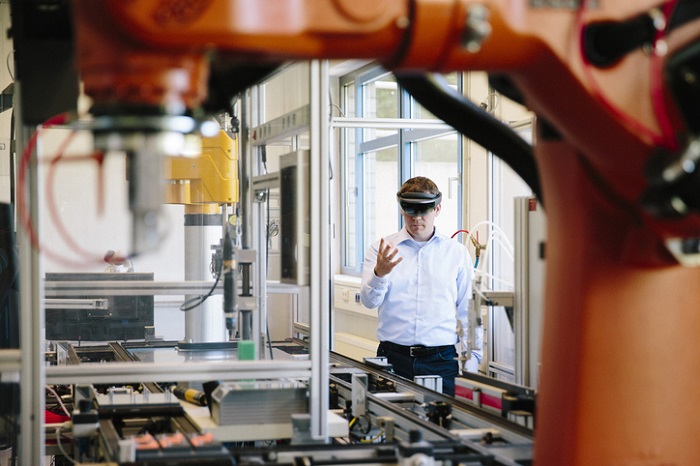Table of contents
Logistics and sustainability do not necessarily need to be mutually exclusive. Innovative technologies can optimise many logistical processes and make them more resource efficient. In this guide, we will show you which measures you can take to promote greater sustainability in your company’s logistics.
Logistics and sustainability
Sustainability is one of the most important issues of our time. The consequences of environmental pollution and climate change can no longer be ignored. More sustainable and eco-friendly alternatives to proven processes are being sought in all areas. This is particularly important in the logistics industry as the transport and storage of goods have historically contributed significantly to environmentally harmful emissions and waste.
Strategies that promote sustainability in companies always aim to make existing working practices more environmentally friendly and socially acceptable. In warehousing and transport, the positive impact that green logistics can have is particularly profound. The negative effects that the production and transportation of goods have on nature and society should be kept to a minimum. Some of these negative impacts include:
- The operation of internal storage and conveyor technology consumes a considerable amount of resources (fuel, electricity).
- If products require a certain storage temperature, rooms must be cooled or heated throughout, resulting in high energy consumption.
- The transport of goods by land or air creates harmful exhaust fumes.
Sustainability in the logistics industry is not necessarily the easiest to implement. From a purely ecological perspective, a great many processes would need to be stopped or radically altered. However, from an economic perspective, this would simply be unrealistic.
To remain competitive in the market, you should focus on sustainable logistics (also known as green logistics). This aims to reconcile ecological and economic goals. The ultimate goal is fully sustainable logistics management, adhering to practices that benefit the environment while allowing the company to continue to operate profitably and competitively.
Where to start with sustainability in warehouse logistics
When it comes to optimising intralogistics, there is no single concrete strategy that works perfectly for every company or industry. After all, storage types and requirements can vary significantly depending on the associated production facilities, operating procedures, and target goods.
Unique factors to consider vary from the processing of incoming goods to picking methods to further processing of stored goods. Varied processes inevitably offer different challenges and opportunities for optimisation. Nevertheless, you can create a base assessment of current procedures in order to uncover opportunities for greater sustainability in your logistics.
An assessment of your warehouse processes and planning must focus primarily on four levels of action:
- Internal procedures and processes
- Warehouse layout and utilisation
- Machinery and equipment
- Cross-process conditions
Some of the most effective, and often easiest-to-implement opportunities for green logistics can be identified in the use of your physical real estate. Consider how you utilise your storage space, the current layout of the warehouse, and your general energy consumption. More specifically, you may wish to start with the following pointers:
- Storage space: Use compact storage systems and high racks to create as much storage space as possible within a limited footprint.
- Warehouse processes: Automated warehouse processes ensure that all work steps are seamlessly interlinked, saving time, and significantly reducing the error rate during picking.
- Energy consumption: An investment in the structural and technical modernisation of a warehouse always pays off in the long run, as operating costs can be noticeably reduced as a result. The positive impact this has on both employee well-being and the broader environment can also be near-immediate.
Depending on the size and layout of the warehouse, it makes sense to set up different areas according to certain criteria. This could include, for example, grouping similar work tasks or storing similar inventory items together. Accordingly, you can then tailor green logistics solutions such as lighting, room temperature, and internal infrastructure to the respective requirements of each area.
Based on your initial assessment, you can effectively organise the broader aspects of warehouse logistics and related areas of activity with your sustainable logistics management goals:
- The optimal setup and equipment of the facilities are followed by the right machinery and systems.
- These, in turn, guide the best possible internal operations with minimal waste and maximum efficiency.
- This interplay ultimately results in your cross-process conditions, which you also implement externally – for example, in the transportation of goods between other facilities and businesses, and collaboration with other companies.
Six tips on how to implement sustainability in transport and logistics
The key to sustainable warehouse and transport logistics is the optimisation of all associated processes. This means analysing all steps in terms of consumption, costs, and efficiency before then implementing appropriate actions to make them as economically and ecologically advantageous as possible. In concrete terms, this means:
- Avoid unnecessary journeys
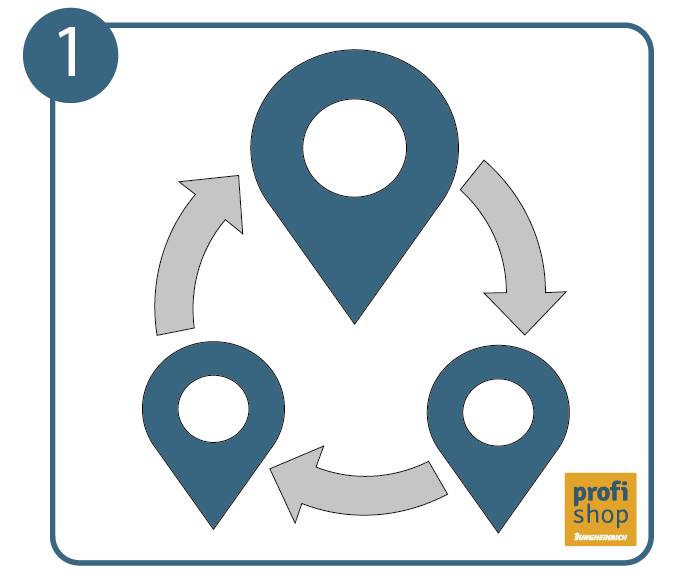 Always move goods over as small a geographical area as possible – both within your warehouse and beyond, so that combustion and electric vehicles consume as little energy as possible.
Always move goods over as small a geographical area as possible – both within your warehouse and beyond, so that combustion and electric vehicles consume as little energy as possible. - Optimise all transport paths
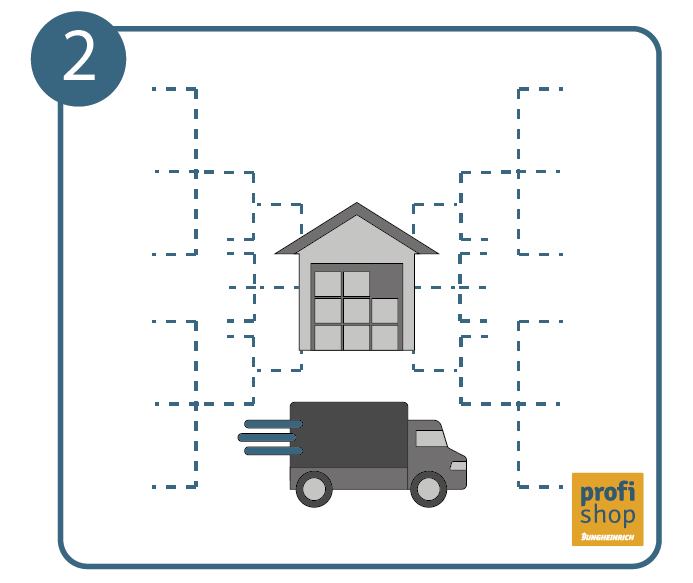 Set up central warehouses or consolidation centres to bundle transport volumes. Evaluate the most sensible route and vehicle while increasing transport efficiency.
Set up central warehouses or consolidation centres to bundle transport volumes. Evaluate the most sensible route and vehicle while increasing transport efficiency. - Plan your warehouse for efficiency
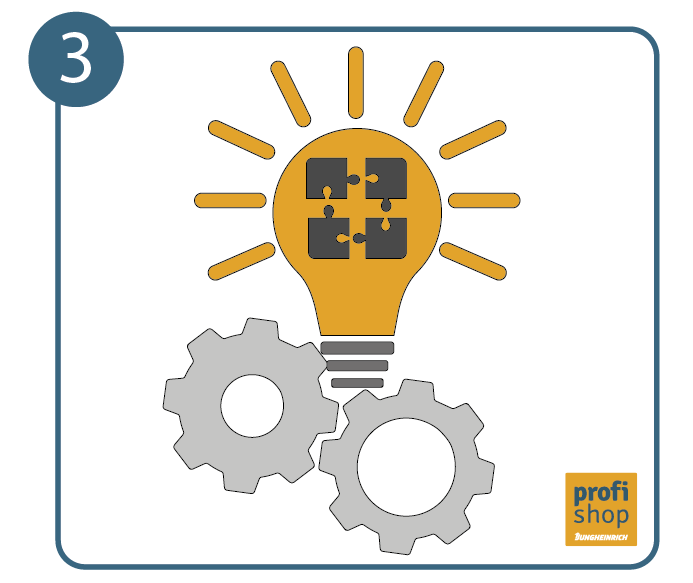 Create a purposeful warehouse strategy to maximise using the space, keep access times short, and avoid obsolescence of goods. Implement strategies such as well-thought-out C-parts management and kitting of materials or assembly parts. Monitor your processes via uniform IT systems along the goods and supply chain.
Create a purposeful warehouse strategy to maximise using the space, keep access times short, and avoid obsolescence of goods. Implement strategies such as well-thought-out C-parts management and kitting of materials or assembly parts. Monitor your processes via uniform IT systems along the goods and supply chain. - Conserve resources
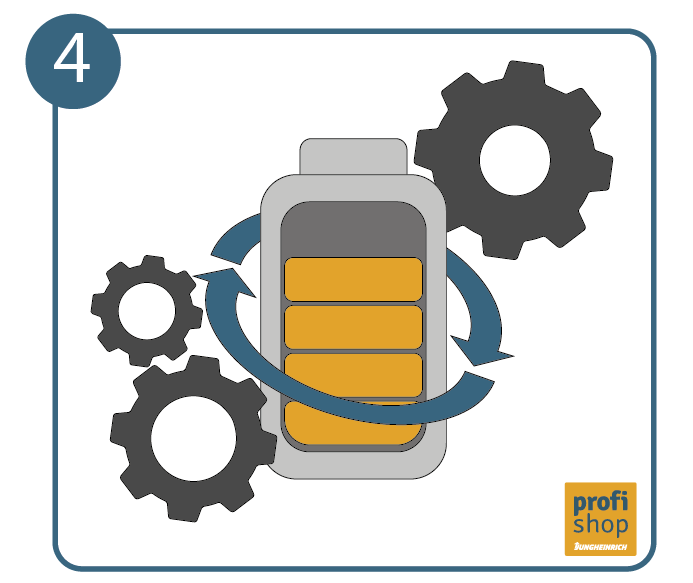 Use raw materials wisely and reduce your energy consumption, e.g. through modern insulation systems, LED lamps, energy-efficient drives in conveyor and production technology, as well as intelligent heating and cooling. All this can help to reduce the energy consumption of a warehouse by as much as 70%.
Use raw materials wisely and reduce your energy consumption, e.g. through modern insulation systems, LED lamps, energy-efficient drives in conveyor and production technology, as well as intelligent heating and cooling. All this can help to reduce the energy consumption of a warehouse by as much as 70%. - Source renewable energy
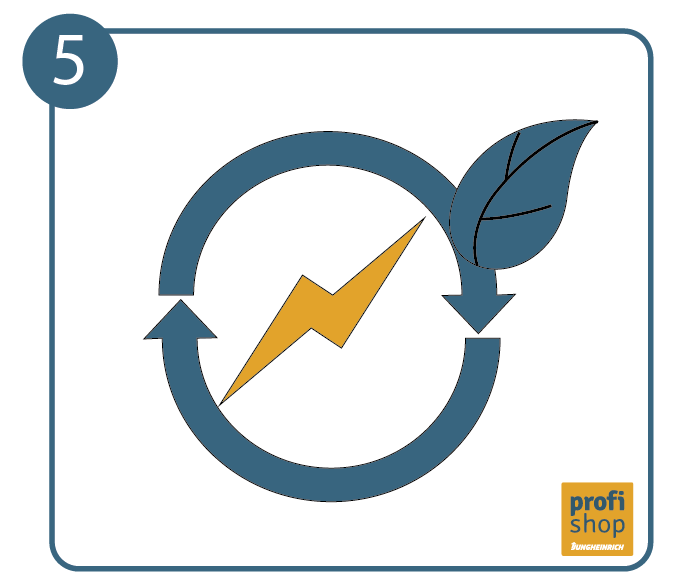 True sustainability in logistics means relying more on renewable energies to reduce pollutant emissions. Effective solar technology and energy recovery systems can often be implemented with minimum disruption.
True sustainability in logistics means relying more on renewable energies to reduce pollutant emissions. Effective solar technology and energy recovery systems can often be implemented with minimum disruption. - Avoid harmful and wasteful packaging
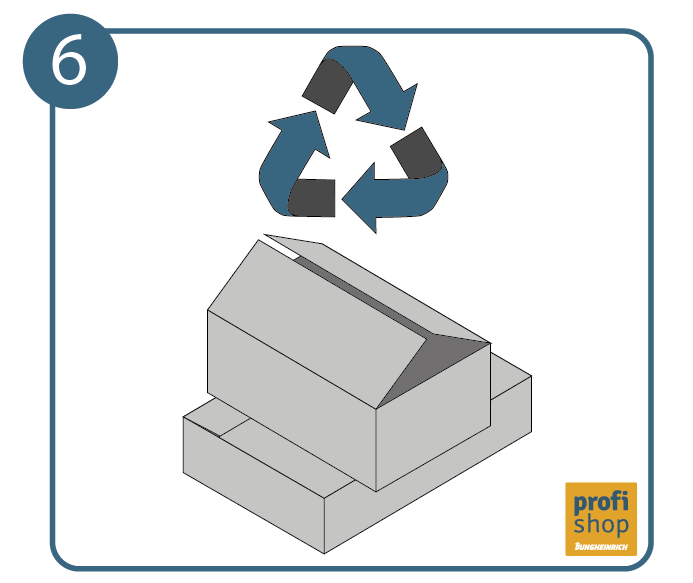 Check how you need to package products and if it is even necessary. Use ecological and recyclable packaging materials. Avoid plastic packaging whenever possible.
Check how you need to package products and if it is even necessary. Use ecological and recyclable packaging materials. Avoid plastic packaging whenever possible.
Sustainable intralogistics as part of a green corporate strategy
Sustainability in logistics cannot be achieved in isolation. Rather, they should always be considered as part of a broader green business strategy.
Ultimately, it is a matter of creating economically and ecologically sustainable end-to-end value chains. Environmental protection and cost savings are best realised when all steps of production, logistics, and operations are optimised as one.
However, the implementation of greater sustainability in the logistics industry, as with any industry, is not without its challenges. While employees and stakeholders are broadly supportive of greener initiatives in principle, putting them into practice can often create conflicts of interest.
The reasons for this are typically:
- The loss of familiar processes, certainties, ways of thinking, and norms
- An expectation that new processes will fail or, at least, reduce productivity
- A general concern that greater efficiency automatically equates with job reductions
While much of the workforce is often positive about the prospects of a “greener corporate culture”, others see it as posing significant personal and wider industry risks.tiv gegenüberstehen, sehen andere darin persönliche und sachliche Risiken.
It is particularly important to clearly communicate the necessity of any changes and the overall benefits of your business strategy. In addition, as a manager, it is important to highlight the successes of your new strategy and, if necessary, monitor for employees who fall back into old patterns of behaviour. This ensures that your entire team is unified in its aim to deliver greater sustainability in logistics.
Sustainability and the transportation of goods
Road freight transport is an area where a particularly high proportion of pollutant emissions are generated. In addition, there are secondary burdens caused by noise pollution and the necessitated expansion of the transport network. Last but not least, there is the risk of environmental damage due to accidents (e.g. during the transport of hazardous materials). Sustainable transport logistics starts at the following points:
- Transport frequency: Journey reduction facilitated by the bundled delivery of several orders
- Means of transport: Use of environmentally-friendly transport vehicles such as electric or hybrid, or those equipped with high-performance pollutant filters
- Transport planning: Optimisation of delivery routes, if necessary cooperation with other companies in order to optimally utilise vehicles and avoid empty runs
- Logistics locations: Establishment of a strategically placed central warehouse to reduce transport distances
In addition, you can reduce the material consumption of your logistics processes by taking back transport packaging and reusing it for the next delivery. If packaging is also made of naturally degradable or recyclable materials, this can also significantly reduce avoidable waste.
Improving sustainability in logistics through digitalisation
The advancement of digitalisation in logistics is now simplifying and optimising many everyday administrative tasks and operating procedures. The automation of warehouse processes and transport planning creates optimal conditions for more efficient storage, routes, and deliveries. With warehouse management and route planning software, you can network all processes with a holistic, top-down approach and thus deliver greater synchronicity and coordination.
FAQ on sustainability in logistics
Sustainable logistics (also known as green logistics) aims to reconcile ecological and economic goals. It is, therefore, a matter of protecting people and nature in the best possible way, while allowing the company to continue to operate profitably and remain competitive.
The key to sustainable warehouse and transport logistics is the optimisation of all logistics processes. This means analysing all operations in terms of consumption, costs, and efficiency, and then taking appropriate measures to make them as economically and environmentally friendly as possible.
1. Reduce consumption of resources, e.g. by using economical drive technology or installing energy recovery systems
2. Adapt your storage strategy to make optimal use of the warehouse space and avoid unnecessary transport routes
3. Optimise the transport of goods by reducing transport distances and making efficient use of vehicle space
4. Use of renewable energies to reduce pollutant emissions
5. Use of ecological and recyclable packaging materials
The best thing to do is to try to avoid unnecessary transport packaging. If this is not possible, you can take back reusable packaging to reuse it for the next delivery. If the packaging is also made of naturally degradable or recyclable materials, it will not pose an environmental burden even after its useful life.
Image source:
© gettyimages.de – TimSiegert-batcam

